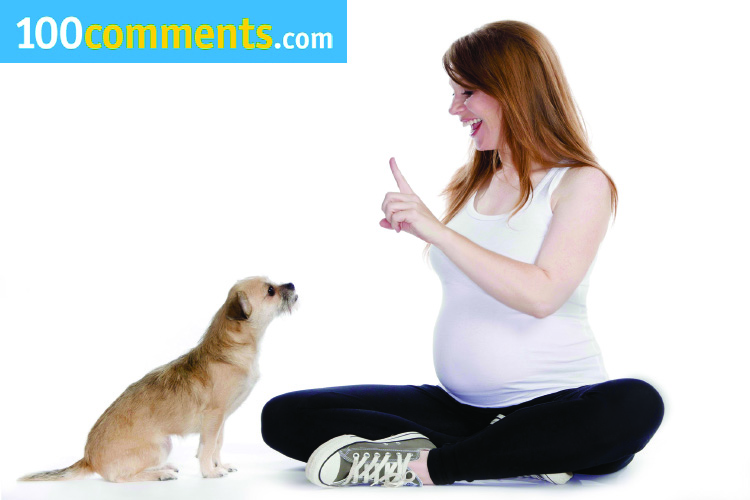If you have a pet or two at home, we’re willing to bet that you treat them just like family and that you love and care for them very much! Even if you happen to be pregnant, chances are nothing has changed and nothing will. Still, there are a few precautions to take when it comes to your pregnancy and your pets just to be safe. Read on…
Table of Contents
Canine Companions
If you have a dog as a pet, you would have surely found that it’s the most faithful and loyal companion imaginable! For the most part, there’s no reason why your dog can’t remain close to you when you’re pregnant. However, it would be good to take the following precautions to help keep yourself safe during pregnancy:
- Don’t let your dog jump up on your belly.
- If your dog has certain habits like biting or jumping on objects or even visitors, train him to stop doing these things before you have your baby.
- Make sure your dog is up-to-date with vaccinations before your baby is born.
If you and your dog are especially close, ask your partner or a family member to spend more time with him. Because your baby will take much of your time and attention, having your dog develop relationships with others can help prepare him for changes to come once your baby is home. The right time to start preparing your dog for the new baby is while you’re pregnant. Identifying and addressing behavioral issues, reviewing basic obedience skills as well as setting routines would make things a whole lot easier for your pet and yourself when your baby arrives.
Feline Friends
Toxoplasmosis is the main concern when it comes to pregnancy and cats. The infection can lead to birth defects and miscarriages in pregnant women. Cats can get the infection by eating contaminated raw meat, birds, soil, or mice. Cats then pass the contagious stage of the infection through their feces. So, pregnant women who have cats for pets should take the following precautions:
- Avoid changing, cleaning, or coming to contact with the litter box while you’re pregnant. If there is no one else to do these for you, be sure to wear gloves and a mask, and wash hands thoroughly when finished.
- Keep cats indoors to avoid them possibly eating contaminates.
- Avoid handling stray cats for now.
- Feed cats only canned or dried commercial cat food. Never give them undercooked or raw meat.
- Do not bring a new cat into your house for now.
Hamsters, guinea pigs and mice
If you happen to be pregnant and have a cute little rodent (or rodents) as pets, do take heed. Mice, hamsters and guinea pigs are potential carriers of a virus called lymphocytic choriomeningitis (also called LCMV) that can be harmful to you and your baby. LCMV can cause severe birth defects and miscarriages.
You can get LCMV:
- From an infected animal bite.
- By touching an infected animal’s urine, blood, saliva, droppings or nesting materials.
- By breathing in dust or droplets when sweeping up droppings or cleaning out a cage.
- Tell your doctor if you have signs and symptoms of LCMV. These include:
- Fever
- Headache
- Fatigue (being very tired)
- Muscle aches or a stiff neck
- Nausea and vomiting
- Loss of appetite
If your are pregnant and own a pet rodent, keep your pet in a separate part of your home for now and wash your hands with soap and water after contact. Ask other family members to care for the pet and clean its cage while you’re pregnant.
Reptilian pets
Pet lizards, snakes, iguanas and turtles can pose a risk to your pregnancy and your child after birth. They can carry the salmonella bacteria in their feces, and exposure to it can cause complications with your pregnancy. If you have any of these as pets, safety precautions to take would include the following:
- Always wash hands thoroughly with soap and water after touching the pet or the cage.
- Do not allow these pets in the kitchen or near any food preparation areas.
- Do not give the pets baths or clean their cages in the kitchen sink. The cage should be cleaned outdoors. If you clean it in the bathtub you should use bleach to disinfect the tub afterward.
- Do not allow the pets to roam freely around the house for now.
















